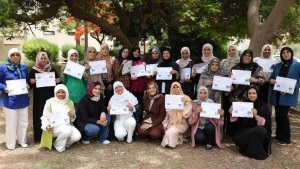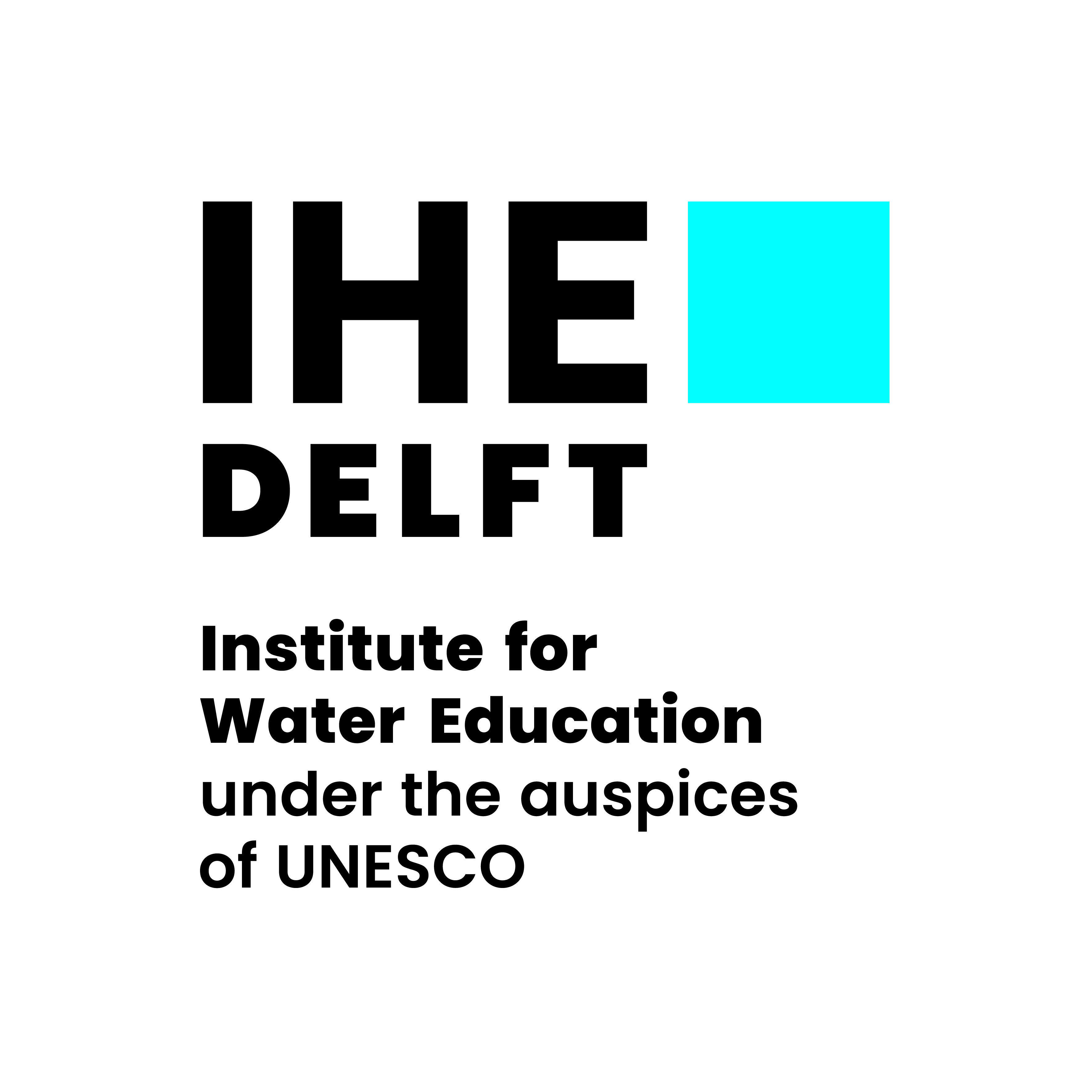WaPOR around the world

The second phase of the WaPOR project, beyond the development of a worldwide database, aims to focus in 12 partner countries over the a period of 5 years, until the end of 2025. Yet, several opportunities have emerged to expand on the reach of the project: through additional funding allowing the integration of new areas, through partnerships with local and international institutions and through other projects that choose to integrate WaPOR data. These are outlined below.
- Water productivity and accounting in Asian Development Bank countries
- Irrigating from space: water productivity for investment
- GCF Pakistan
- GEF on groundwater resilience
- Sahel drylands monitoring
Latest updates on the use of WaPOR in other projects and other institutions

WaPOR inception workshop in Morocco
26/07/2023
On 26 July, a number of stakeholders gathered in Rabat to officially launch the LoA between the FAO and the Moroccan Digital Centre (

National training workshop to support gender equality and women’s empowerment in Libya
16/06/2023

Capacity building on WaPOR data use for water management: in 2022, a session on WaPOR data was taught by the WaPOR technical officer at the the CIHEAM-Bari summer program on Earth Observation for improving irrigation management in the Mediterranean and Middle East regions.
Bekaa Valley economic irrigation water productivity study for investment
Using an investment lens, a technical team from the FAO Investment Center carried a study in the Bekaa Valley on the economic irrigation water productivity of wheat and potatoes. The study culminated in the production of an investment brief that posits that the correct application of WaPOR combined with economic data can lead to better policy and investment decision-making and more sustainable agricultural water management in water-scarce regions.
Involved institutions:


More information:
Investment brief
Supporting article
Short video for world water day 2023
Expanding support to Water Accounting in River Basins and Water Productivity Measurements in Irrigation Projects
The ADB committed, under its Water Operational Plan 2011-2020, to undertake expanded and enhanced analytical work to enable its developing member countries to secure deeper and sharper understanding of water issues and solutions. The studies realized during this project aim to support (a) ADB’s lending and non-lending assistance in the water sector, and (b) the design of irrigation projects at an early stage at selected candidate projects.
The analyses contributed to various ADB funded projects in six countries (Cambodia, India, Kazakhstan, Mongolia, Philippines and Sri Lanka). WaPOR data was used for the water productivity assessments and as input data in water accounting.
Involved institutions:



More information:
All outputs of the project (reports, webinar recordings, etc.)
Water accounting portal
Development of water and agriculture geo-services in the basin of Oum Er-Rbia in Morocco
In May 2023 the FAO signed a letter of agreement (LoA) with the Moroccan Digital Agriculture, Forestry and Drought Observatory Centre (Pôle Digital de l’Agriculture, de la Forêt et Observatoire de la Sécheresse) which is a public interest organisation that aims to support the second pillar of the country's program that defines the national agricultural policies (Plan Maroc Vert) by, among others, integrating digital solutions to the sector.
The LoA describes the partnership of the two organisations in the use of WaPOR data, in combination with local datasets, to create tools that can help increase water management in two major agricultural areas in the basin of the Oum Er-Rbia river in Central Morocco
Milestones:
- 7 May 2023: signature of the LoA
- 26 July: inception workshop
Involved institutions:


More info:
Article on LoA signature
Article on the inception workshop
FAO Multi-disciplinary Fund projects coming together to support pastoralism in the Sahel
Two FAO projects: “Improving land and water productivity in the Sudano-Sahelian belt” and “Strengthening resilience of pastoralists and agro-pastoralists in the Sahel through innovative tools and improved data” have come together since 2021 to identify ways to help Sahelian pastoralists and agro-pastoralists become more resilient in the face of the current challenges, including the ways in which climate change affects feed availability.
Milestones:
- August 2021: needs identification workshops in
- July 2022: workshop for the co-development of an application based on WaPOR data that will support transhumant herders
- March 2023: workshop to present 1st version of the application and gather feedback from stakeholders
KnoWat project
The KnoWat project was axed on the principle that a strengthened focus on water accounting and water governance is crucial to address water scarcity in a changing climate and to strengthen food security and ensure access to water for all.
The project focused on strengthening water governance processes in Rwanda, Senegal and Sri Lanka through building capacity in water accounting, and developing and testing a methodology for the assessment of water tenure. In regards to water accounting assessments (at the national level, the basin level as well as scheme and farm level) the project worked with local institutions to use the information provided by the WaPOR database to improve water balances, monitor resource use and promote their efficient use, modernize irrigation systems, improve water productivity and yields, therefore improving the livelihoods of the farmers.
The project ended in late 2022 and a new phase is currently being discussed.
Involved institutions:


More info:
KnoWat website
Brochure on the use of WaPOR data in water accounting, including in the context of KnoWat
WEPS-NENA: water efficiency, productivity and sustainability in the NENA region
The WEPS-NENA project aims at (1) supporting changes in the management of strategic resources as water, land and energy, as outlined by the Agenda 2030, (2) at setting the proper framework for its implementation for water efficiency and productivity (SDG 6.4) and (3) at defining the safe boundaries for effective water sustainability.
The project was implemented in eight countries in the NENA region: Algeria, Egypt, Jordan, Iran, Lebanon, Morocco, Tunisia, and Palestine. WaPOR data was used in water accounting initiatives, evapotranspiration and water productivity assessments, crop mapping initiatives. Some of the capacity that was built during this project on the use of the WaPOR database laid a foundation for the current work that is being done in the partner countries.
The WEPS-NENA project ended and a new phase is under discussion.
Involved institutions:


More information:
Adapting rural households in Southern Iraq to water scarcity induced by climate change by empowering women as agents for transformation and addressing the food-energy-water nexus
The goal of this project funded by the Canadian Government and executed with the technical support of the FAO, is to enhance the resilience of women and men in vulnerable agriculture households, in particular related to climate change risks, in the Southern Iraqi Governorates of Babil, Missan, Muthanna, Najaf, Al Qadisiyah, Thi-Qar and Wasit. WaPOR data will be used to identify specific areas of intervention of the project within those governorates and to, potentially, monitor these areas.
GCP /IRQ/073/CAN
Involved institutions:


More information:
Enhanced Climate Resilience of vulnerable agriculture households in Southern Iraq
The initiative has been formulated to address the challenges encountered by the agricultural sector concerning water availability attributed to shifts in the global climate. The primary objective is to bolster the ability of farming communities to withstand climatic pressures by augmenting and steadying the supply of water directly at the farm level. This will be achieved by optimizing both agricultural practices and water productivity, as well as reducing the gap in adaptive measures within farming communities through customized training and capacity-building. Additionally, the project aims to fortify water management institution and the distribution of water resources, while also enhancing the overarching strategy and involvement of stakeholders in fostering an agricultural sector that is more resilient to climate change.
The project will be executed such as to ensure gender and social inclusion, ecosystem and biodiversity health as well as a reduction in soil, water and air pollution. WaPOR data will be use in water productivity monitoring.
GCP /IRQ/007/SWE
Involved institutions:


More information:
Technical assistance package for food security
In December 2022 the Director General of the FAO and the president of the European Bank of Reconstruction and Development (EBRD) launched a joint initiative to support food security in the Southern and Eastern Mediterranean.
The initiative will focus on grain markets, which have recently made global food security tip over into precarity, by: working with countries to revisit their agrifood policies and improve the resiliency of the grain value chain. WaPOR data will be used to operate water and land productivity assessments that will support the identification of the right investments towards the betterment of grain production.
Institutions involved:


More information:
FAO projects in Libya
Two complementary FAO projects are operating in Libya and using satellite imagery to determine the spatial and temporal variability of agricultural water and land productivity:
- “Monitoring, evaluation and rationalization of water use for agriculture sector in Libya” funded by the Italian Agency for Development and Cooperation
- “Evaluation of irrigation infrastructure, crop mapping and estimation of agricultural water use in Libya (IagWat)” funded by the African Development Bank
WaPOR data will be integrated in the MerWat-Libya platform (monitoring, evaluation and rationalization of water use for agriculture sector in Libya) that will contain an array of datasets that can help with a better usage of water resources in the country and it will be used in a range of land and water productivity assessments.
Milestones:
- 30 January - 1st February 2023: 3 day workshop on the monitoring of water consumption and productivity through remote sensing and on effective options for increasing water productivity in Fezzan region
- 13–14 June: WaPOR training for Libyan women professionals
Involved institutions:



More information:
AICS press release
Groundwater for aDvancing Resilience (G4DR) in Africa project
G4DR aims to bring groundwater and its sustainable development and protection to the forefront of water security planning and investment in Africa, enhancing resilience for humans and ecosystems. It will do so through the following four components:
- Strategic Planning: Supporting the African Ministers’ Council on Water (AMCOW), through their Pan-African Groundwater Program (APAGroP).
- Evidence and Capacity for G4DR in Africa: Identifying aquifers that present risk and opportunity to enhance resilience, as well as populations/socio-economic contexts in Africa informing investments and utilizing evidence-based planning to realize on-the-ground impacts in pilots.
- Incorporating G4DR into pan-African Youth Forums: enhancing the beyond-project capacity, outreach, networking, and uptake of long-term workable and sustainable strategies and solutions.
- Supporting Knowledge Management and M&E: Supporting capture, exchange and dissemination of key project advancements, as well as evaluation of project progress relative to targets.
WaPOR data will be used in the 2nd component by providing data to the pan-African groundwater assessment (groundwater availability and demand) and by developing capacity to use GIS and remote sensing for groundwater monitoring in particular.
Involved institutions:
FAO is the GEF Implementing Agency. The International Water Management Institute (IWMI) is the executing agency, in partnership with the African Ministers' Council on Water (AMCOW), the International Institute for Applied Systems Analysis (IIASA), and national partners in Benin, Malawi, Mozambique, Togo and Uganda.




More information:
